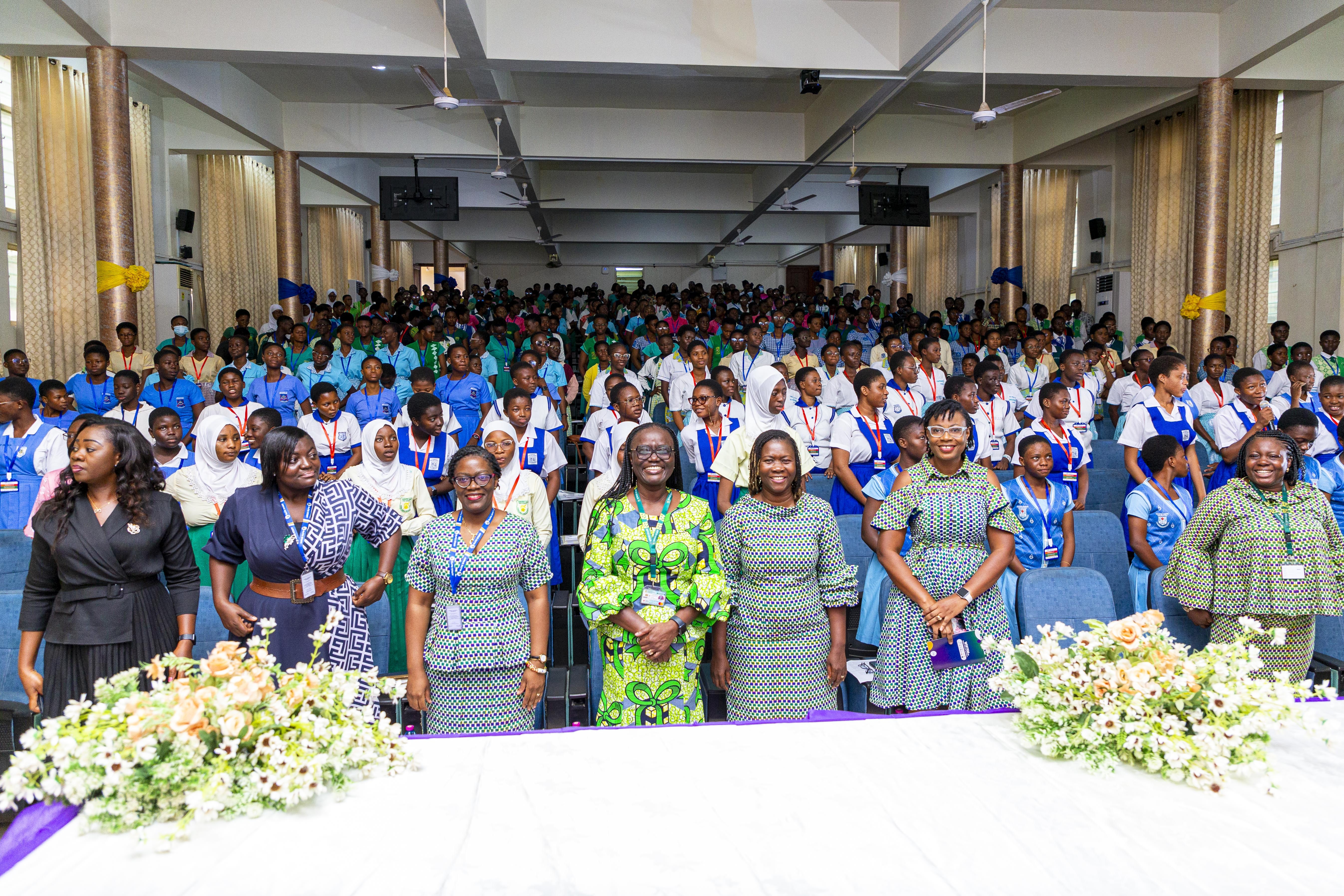The Women in Science, Technology, Engineering and Mathematics Ghana (WiSTEMGh) of the Kwame Nkrumah University of Science and Technology (KNUST) has held the fifth edition of STEM Girls’ Camp for selected categories of senior high schools (SHS) in Ghana.
The week-long Camp - themed, ‘Accelerating Progress: Investing in Girls through STEM Education’’ brought together over three hundred and ninety-five (395) participants, including three hundred and twenty (320) girls from the Ashanti and Western North regions, sixty (60) tutors, and fifteen (15) girls representing wards of staff.
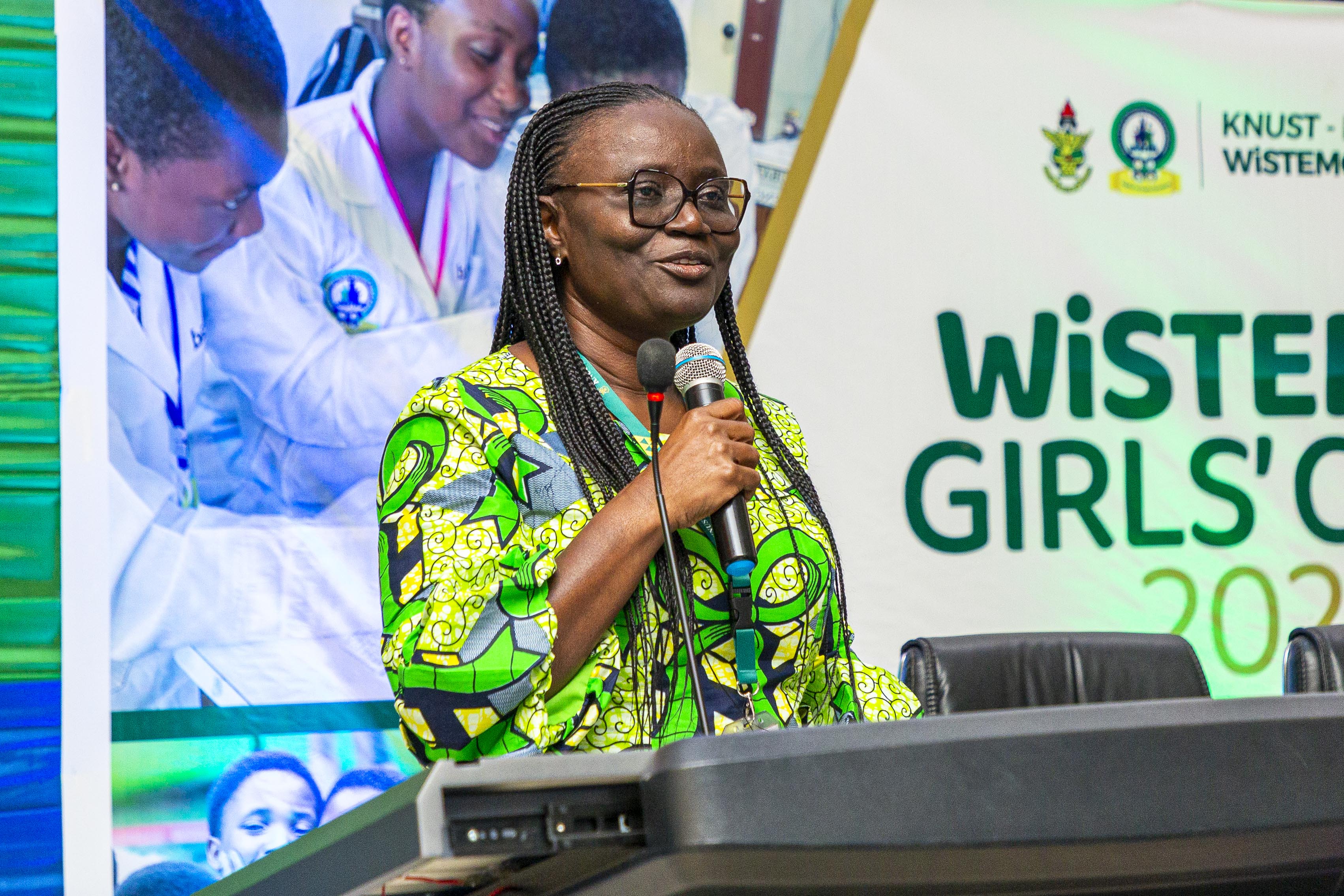
Opening the camp, Professor (Mrs.) Rita Akosua Dickson, Vice-Chancellor of KNUST, underscored the need for increased female representation in STEM fields. She emphasised the importance of community support and male allies in advancing gender equality in STEM. “We need a community that believes in our abilities and encourages our aspirations,” she said. Professor Akosua Dickson encouraged the girls to take full advantage of the Camp, build strong networks, and seek mentors who could help shape their careers in STEM.
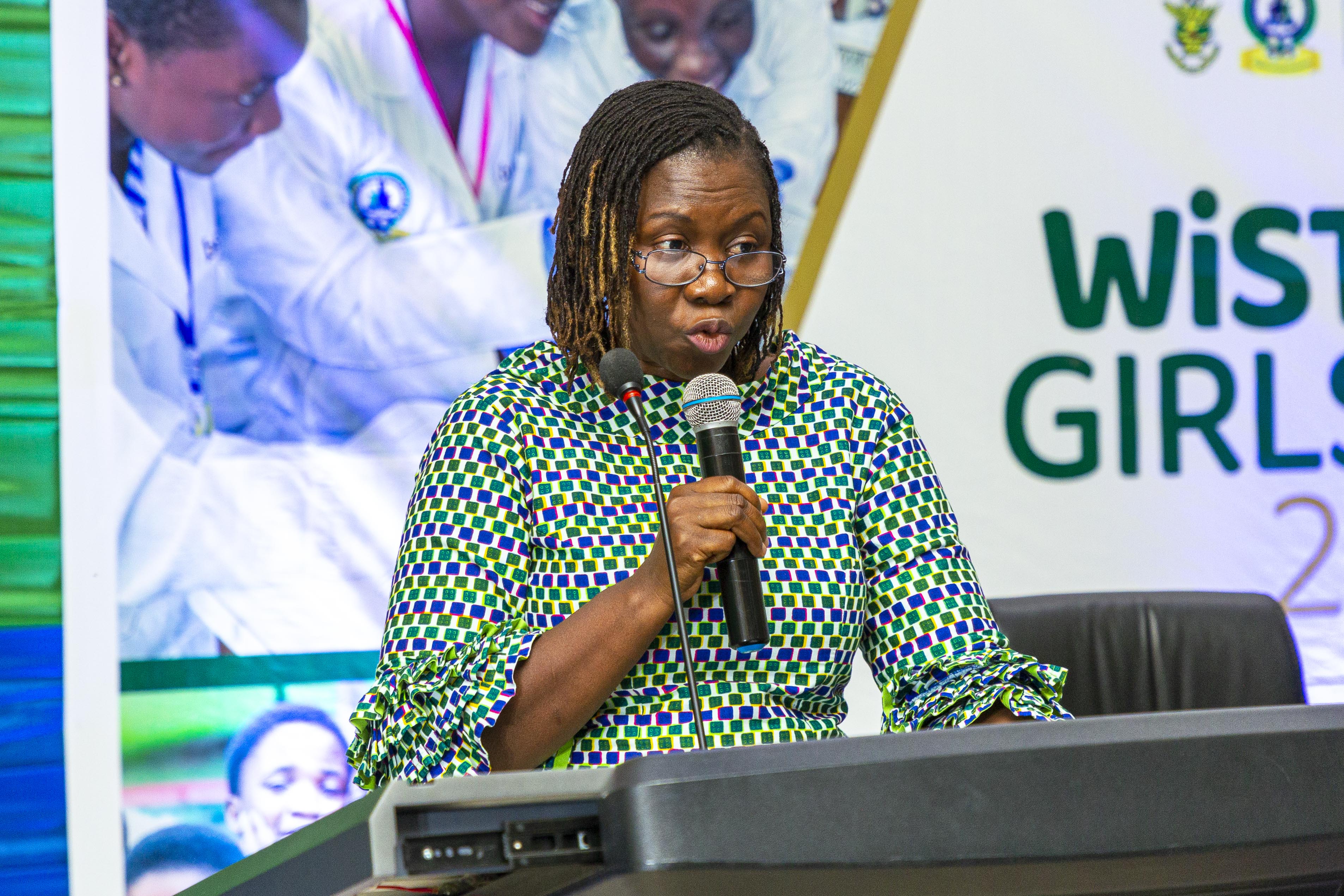
The Executive Secretary of WiSTEMGh, Professor (Mrs.) Mercy Badu, stated that the Camp serves as an annual programme for SHS girls pursuing General Science and related subjects in school designed to bridge the gender gap in STEM education by providing hands-on experience, mentorship, and exposure to real-world STEM applications. “The WiSTEMGh Girls’ Camp is a platform to unlock potential and show these young ladies that a future in STEM is not just possible - it is theirs for the taking,” Professor (Mrs.) Badu stated.
Professor (Mrs.) Mercy Badu urged the participants to dream big, reminding them that the future is in their hands. She thanked the sponsors and the Planning Committee of the 2024 WiSTEMGh Girls’ Camp for their contributions and commitment, stressing that their support is an investment in a brighter and more equitable future of the young participants.
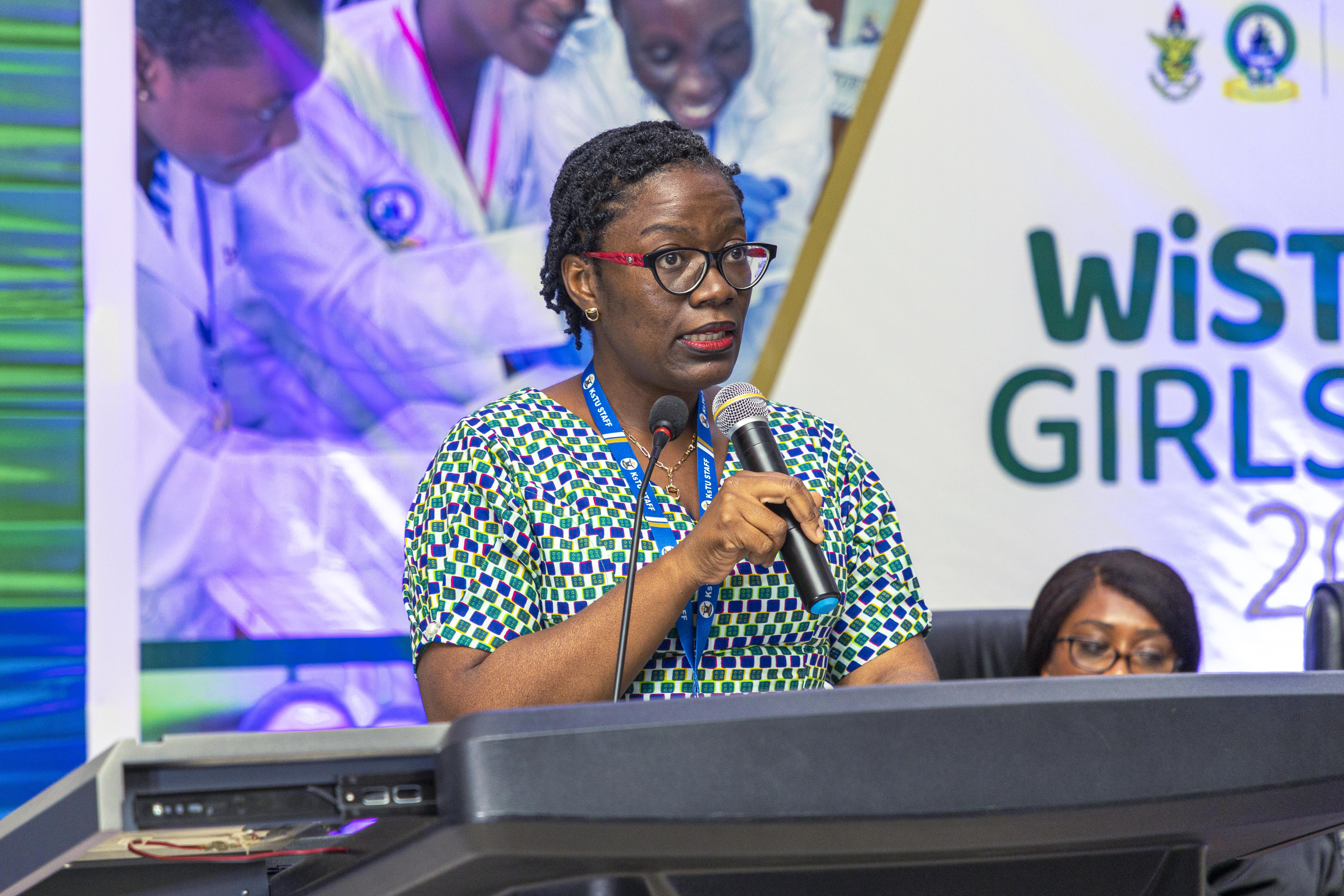
In her keynote address, Professor (Mrs.) Abena Agyeiwaa Obiri-Yeboah, the Pro Vice-Chancellor of Kumasi Technical University, bemoaned the persistent underrepresentation of women in STEM careers. She noted that despite a slight increase in female participation in STEM, more work is needed to fill the growing opportunities in STEM fields. "The perception that STEM is only for boys is bound to change, and you are the change-makers," she encouraged.
Professor (Mrs.) Obiri-Yeboah called on the girls to be resilient and pastries above societal expectations. She further encouraged the participants to forge bonds and create networks during the Camp, as these connections would play a key role in shaping their future careers.
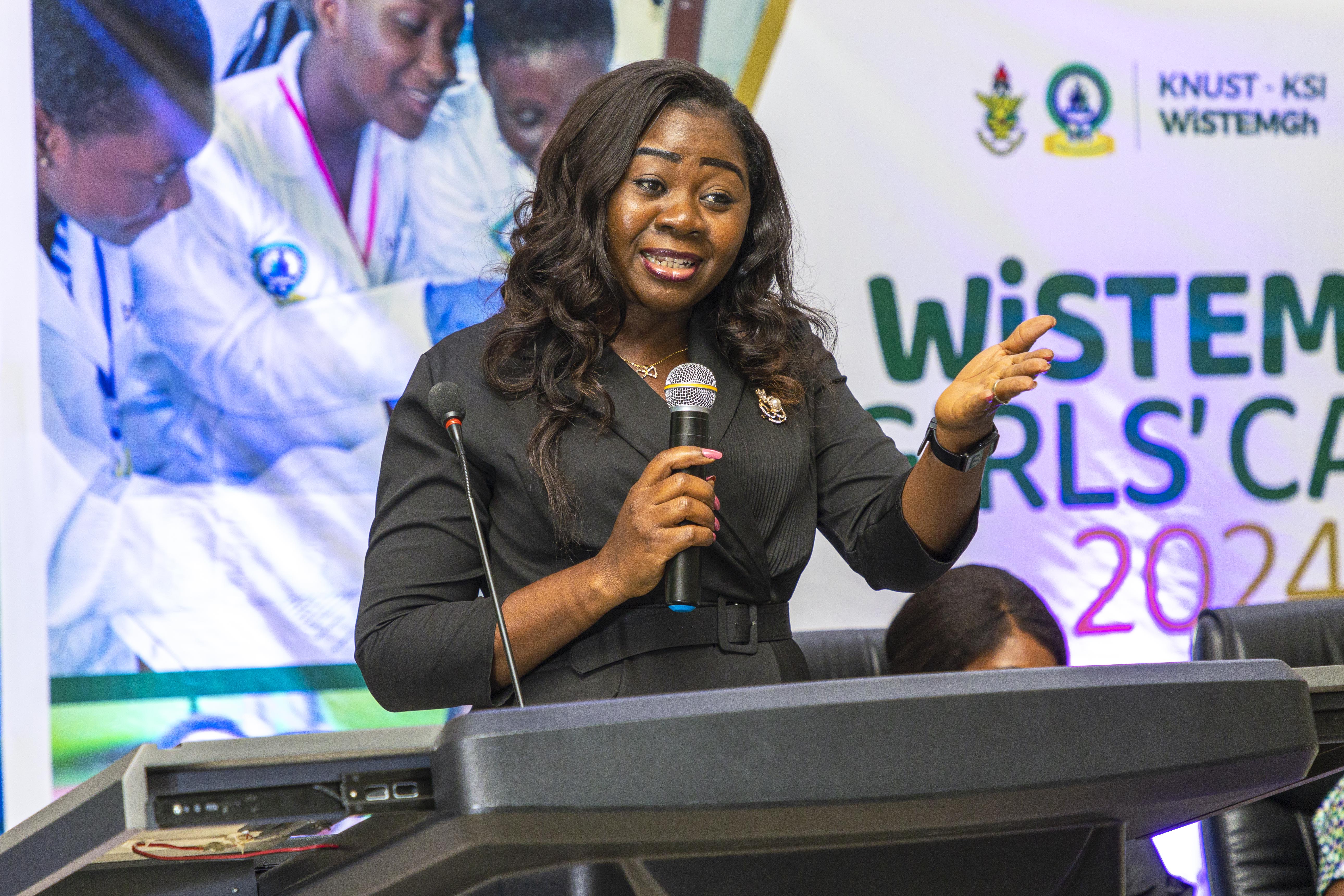
Mrs. Aya Ayettey, Head of Production Assurance and Customer Care at Stanbic Bank shared her inspiring journey as a woman in Information Technology. She emphasised that empowering girls with the necessary STEM skills has the potential to transform not only their lives but also their communities and industries. She also highlighted Stanbic Bank's contributions towards STEM, including the donation of two hundred and fifty (250) laptops to support females in STEM programmes at KNUST. She commended the Vice-Chancellor’s ‘Support One Needy Student with One Laptop (SONSOL) initiative’ for the opportunity to work with beneficiaries of the initiative as interns at Stanbic Bank. "I am impressed with the skills and dedication of the beneficiaries of the initiative. The young women I have worked with as interns have shown that they are ready to break barriers and excel in traditionally male-dominated fields," she remarked.
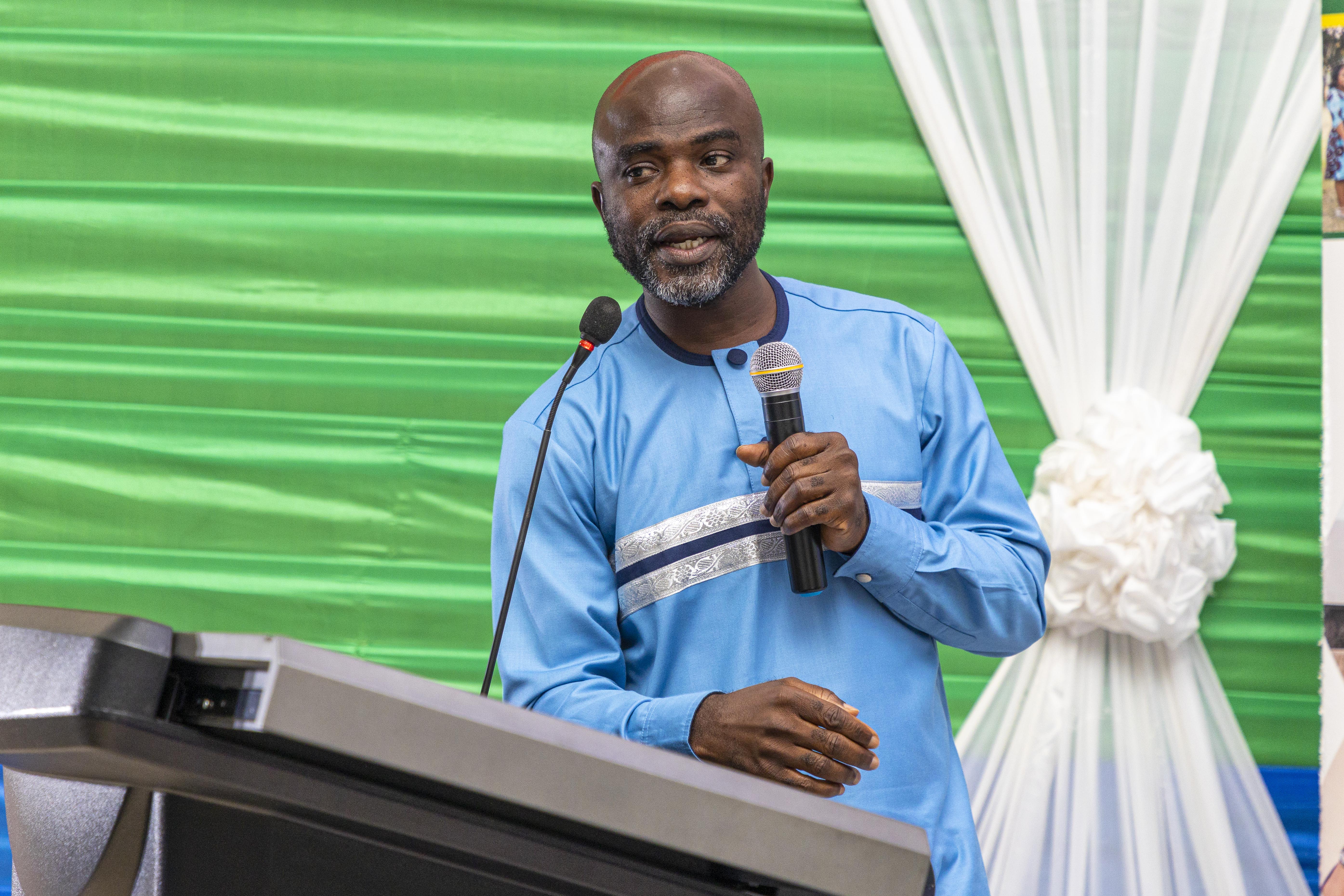
Dean of the Faculty of Chemical and Mechanical Engineering and the Energy Team Lead, RAIL at KNUST, Professor Francis Kemausuor, presented on the growing importance of Artificial Intelligence (AI) in STEM education. He discussed the innovative projects being developed at the Responsible Artificial Intelligence Laboratory (RAIL), including an AI-powered app that helps farmers detect plant diseases and predicts energy needs in rural communities. He encouraged the girls to embrace AI, stating, “AI is not here to replace your work but to enhance your capabilities. It is a tool that will allow you to achieve more in less time.” He advised the participants to stay curious and keep exploring the limitless possibilities in STEM fields.
Messages were received from sponsors of the 2024 WiSTEMGh Girls’ Camp, all of whom reaffirmed their commitment to supporting young women in STEM.
The week-long Girls’ Camp featured seminars on career prospects, industrial tours, and mini hands-on STEM projects. The participants visited prominent research institutions such as the Forestry Research Institute of Ghana (FORIG), Building and Road Research Institute (BRRI), Kumasi Centre for Collaborative Research in Tropical Medicine (KCCR), and the Stanbic Bank Asokwa Branch, for real-world insights into STEM applications across different industries.
As part of the Camp’s activities, participants were divided into thirty (30) groups and assigned mini-STEM projects aimed at solving real-world challenges. Outstanding projects included an emergency nursing system focused on patient care, an electric car powered by renewable energy, and artistic leather lamp shades blending engineering with design. These projects brought out the creativity in the participants and provided them with excellent practical skills to appreciate and develop solutions for real-world problems.

